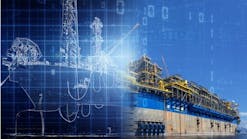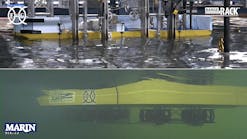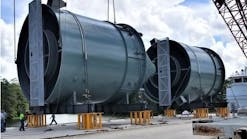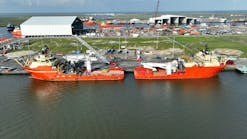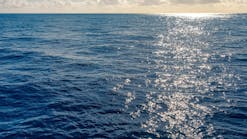Dutch contractors eyeing gas/fabrication ventures in emerging offshore sectors
Jeremy Beckman
Editor, Europe
National supplier groups in Europe face a new challenge - how to respond to members’ demands, following the global surge in offshore activity.
The turning point for Dutch contractors came last summer, says Hans De Boer, Managing Director of IRO. “Before then, things were pretty slow for our members, particularly in their back yard of northwest Europe. Now there are so many new project opportunities, and that impacts our association. Last year we had a net growth of 14 new members. This year already we have had 25 new companies joining IRO.”
IRO's Hans De Boer
The main attraction, he believes, is the networking benefit that membership brings. “We have several large offshore contractors with a lot of work on their books. They prefer employing our smaller members as subcontractors and suppliers. A recent example was the first-phase conversion of Allseas’Solitairepipelay vessel early this year at the Keppel Verolme yard in Rotterdam. Of the 50 subcontractors involved, more than 90% were Dutch.” Other services IRO can offer include information on export opportunities, seminars, and meetings with national oil companies.
The latest intake include four well service companies and the process specialist Stork Industry Services, which has a long-term maintenance contract with Amec and Jacobs Engineering for all Shell’s platforms in the southern North Sea. Another new member is offshore manpower services provider Brunel. “This is a very active part of the market,” De Boer points out, “with many companies crying out for skilled personnel.”
Like other national associations, IRO can also further its members’ interests at the major oil and gas trade shows.
IRO organized a matchmaking program at ONS last August, bringing together interested member companies with their counterparts in Norway in the hope of establishing business links. A similar meeting will be staged at Offshore Europe with Enterprise Ireland, the government body charged with promoting the interests of Irish companies. “This concerns the evolving E&P sector to the west and south of Ireland,” De Boer explains, “as they have little experience in oil and gas operations.”
Also at Offshore Europe, Agip KCO has asked IRO to assist in its presentations on the Kashagan shallow water development in Kazakhstan. “The focus will be on operational, maintenance and logistical issues. The Kazakhs lack knowledge and suppliers in certain areas of engineering, so we are trying to match some of our members with their local companies. ”
Some are already active in this country: Boskalis built up Kashagan’s artificial islands, which were designed by engineering firm Witteveen & Bos. Wagenborg has been a leading provider of marine services in the Caspian Sea since 1997. Keppel Verolme is currently working with parent company Keppel Offshore & Marine to develop their yard in Aktau. “Our relationship with the Kazakh government is also healthy,” De Boer says. “Their Energy Minister has been invited to Holland in late August by our Minister of Economic Affairs, and we have been asked to sit in on the meeting.”
Following soundings of the members, IRO plans to focus on two new countries from September. The first is China. “As I see it, up to now China has been a relatively small market as far as natural oil and gas resources are concerned,” De Boer says, “but it is a big country with a large population and a heavy energy demand. Some of our members are already making their presence felt. Huisman-Itrec, for example, is setting up a very big yard in Xiamen, due to open early next year, to produce cranes, pipelay, and drilling equipment.
“One problem the company is finding, however, is that there are no good oil and gas exhibitions in China. So we must look instead at taking trade missions to meet their national oil companies, and try to arrange programs to bring our suppliers together with potential local production partners. China has many attractions, as it remains one of the cheaper locations for assembling offshore facilities.” IRO’s other target arena is Libya, where trade show opportunities are presently equally limited.
Gas opportunities
One new initiative, under way since April, is the IRO Gas Group, comprising 20 member companies working together to investigate opportunities in natural gas. These include long-distance gas transportation, underground storage and LNG. “We feel there will be a very big development of gas worldwide,” De Boer says. “Some of the majors like Shell, for instance, are focusing worldwide on long-term developments of natural gas. In Holland, we have over 40 years’ experience in gas, via large fields such as Groningen. So we should be more active in promoting our expertise in areas such as enhanced production, distribution and transportation.”
Gasunie and NAM are the leading members in this regard. In terms of technology, Gusto has a fully-validated design for an LNG FPSO and Huisman-Itrec has ideas for offshore loading systems. Other Dutch companies are looking to set up LNG terminals in Holland. Two are under study for sites in Rotterdam and Groningen.
The gas sector in the Dutch North Sea has also revived, following increased demand and higher prices in northwest Europe. Most of the Dutch fabricators have a reasonable workload of new platforms or modules for the year ahead. Another positive development concerns a report published last October by the Economic Affairs Minister, outlining his views of the way forward for the Dutch North Sea. Among his recommendations were the need to simplify rules and procedures for obtaining exploration and production licenses in the Dutch sector. “The Ministry also wants to make more technical information available to would-be operators,” De Boer says. “TNO NITG is one of the main players in this initiative, focusing on opening up geotechnical data.
“Another priority for the government is to address E&P licenses without a work program. They might look to force the operators to start activity in a reasonable time-frame or else hand them over to other interested parties. Also, the Ministry will start to promote the sector more actively to attract new operators. In the UK there are 40-45 active operators, many being small independents. We have only 10 operators, and only three or four of these are in the small category. IRO has agreed to co-operate with the Ministry in promoting new opportunities on the Dutch shelf at trade shows. They themselves will have an information stand at the Dutch pavilion at Offshore Europe.”•


